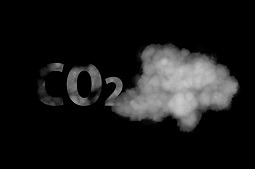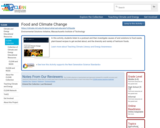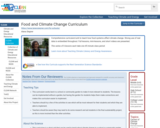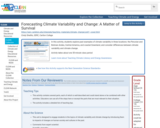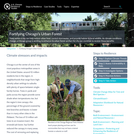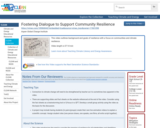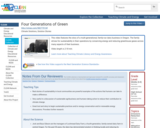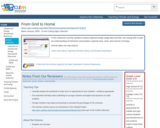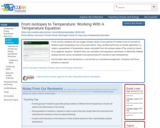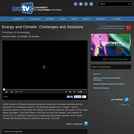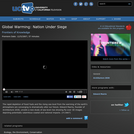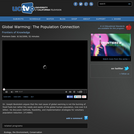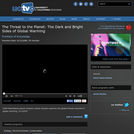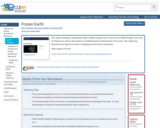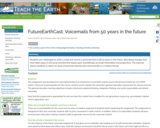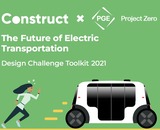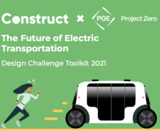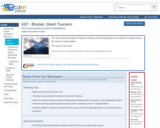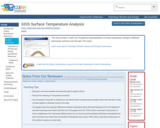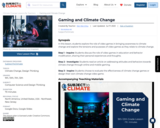SYNOPSIS: In this lesson, students explore the role of video games in bringing awareness to climate change and explore the tensions and purposes of video games as they relate to climate change.
SCIENTIST NOTES: This lesson challenges students to think about how video games can be utilized to teach others about climate change. Students walk through this lesson by first critically thinking about what makes video games fun and entertaining, followed by reading an article and discussion centered around how gaming can educate people on climate change, and finally options at the end to create their own game about climate change. The lesson includes an op-ed article written by an author who writes about many things including sustainability. This is a great lesson for teaching alternative methods to educating the public about climate change.
POSITIVES:
-This lesson can be used in computer science, environmental science, physics, and engineering classes.
-Students are given voice and choice in this lesson.
-Students connect to an activity many already engage in to rediscover new purposes.
-Teachers have several differentiated options depending on skill, interest, and experience.
-This can be self-directed or teacher-guided and can be drawn out or built upon as the starting point of a larger unit on game design or elements of computer-based game design.
ADDITIONAL PREREQUISITES:
-Students should have a basic understanding of climate change and its different effects.
-Students should have an awareness of basic game design categories.
-Teachers should be clear on which computer programs and platforms the school has access to for coding and game design.
DIFFERENTIATION:
-Depending on various coding or computer skill levels, teachers can adjust for different degrees of difficulty and ability. For an introduction class or for students who have little experience with computers or coding, the Inspire activity can be completed and mapped out on paper.
-Teachers can adjust the Inspire section to target specific computer science or coding skills or to focus on aspects such as design, evaluation, music, visuals, decisions, and rewards.
-Students can work independently or in small groups with varied purposes. For example, the whole class can design a game and together come up with the goal and purpose. Smaller groups can be formed to design different elements of the game.
-Teachers can decide to offer one or both options in the Inspire section. Teachers can also choose to focus only on evaluating current climate change video or mobile games, dividing the class into groups where each group evaluates 2-3 existing games.
-Students can use different programs or learning platforms depending on what different schools have.
-Students can present their findings or games to different audiences.

